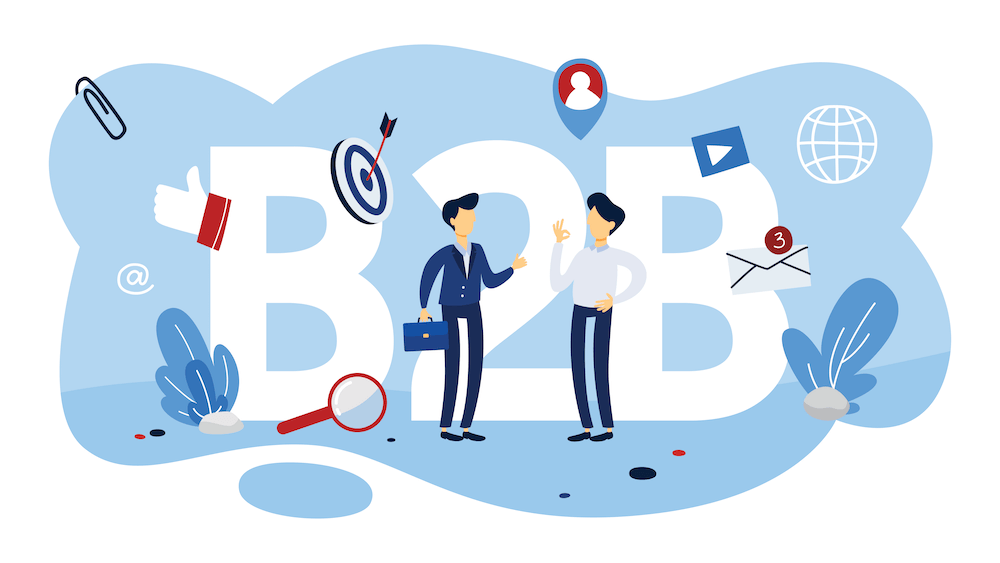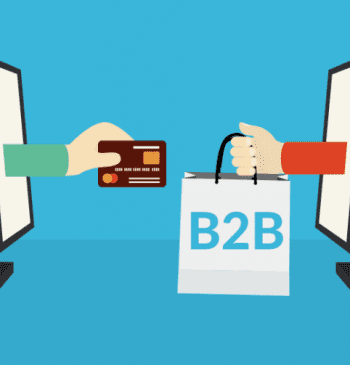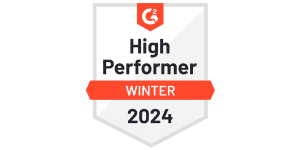13 Mar

B2B customer experience (CX) refers to the overall experience that a business customer has with a company. With the rise of e-commerce, B2B enterprises must give greater attention to CX to differentiate themselves from competitors in a saturated market. This involves developing a comprehensive B2B marketing strategy considering business customers’ unique needs and preferences.
One effective way to build customer loyalty and improve B2B CX is by implementing a well-designed B2B loyalty program. Apex e-commerce is a trusted player in B2B customer experience, providing businesses with extensive tools and assistance to create and execute effective loyalty programs that increase customer engagement and foster growth.
Why is B2B Customer Experience Important?
More and more businesses look towards B2B customer experience and loyalty programs to differentiate themselves in a crowded market. Developing an effective B2B marketing strategy to keep the competitive edge provides cost-effective solutions. One powerful tool for building customer loyalty and improving CX is implementing a well-designed B2B loyalty program. By building a B2B loyalty program that meets business customers’ unique needs and preferences, companies can improve CX, increase customer satisfaction, and drive revenue growth.
1. Understanding the Customers
The first step in creating an effective B2B customer experience and loyalty program is to understand the needs of your business customers. Apex e-commerce provides businesses with the tools and support to gain valuable insights into their customers’ behavior and preferences, allowing them to tailor their marketing efforts and loyalty programs accordingly. By understanding their customers deeper, businesses can improve customer satisfaction, drive engagement, and ultimately, grow their revenue.
2. Personalized Service
Delivering personalized service is a major part of the business-to-business customer experience, as it allows businesses to tailor their interactions with clients based on individual preferences and needs. Apex e-commerce empowers companies to create tailored marketing campaigns and loyalty management that address each business’s specific requirements and preferences. By providing personalized service, businesses can strengthen customer relationships and create a more positive overall experience. This, in turn, can lead to increased customer loyalty and long-term revenue growth.
3. Streamlined Processes
Streamlining processes in the B2B customer experience can save businesses significant time and money. With the Apex loyalty program, companies can automate and simplify many aspects of their marketing and loyalty programs, from personalized communications to rewards management. By streamlining processes, companies can reduce friction in the customer journey and improve overall satisfaction. This, in turn, can lead to increased loyalty and revenue growth.
4. Effective Communication
Effective communication channels would allow the business to quickly provide valuable B2B customer experience feedback. By communicating in a way that resonates with individual customers, companies can create a more positive overall experience and drive long-term revenue growth. An effective B2B marketing strategy and loyalty program emphasizing communication can help businesses succeed in a competitive market.
Elements of B2B Customer Experience
Businesses must prioritize several business-to-business customer experience (CX) elements to succeed in a competitive market. These include personalized service, streamlined processes, effective communication, and a well-designed loyalty program. By leveraging these elements, businesses can improve CX, drive customer engagement, and ultimately, increase revenue growth. By understanding their customer’s needs and preferences and tailoring their marketing efforts accordingly, businesses can build stronger relationships with their customers and gain a competitive edge in B2B e-commerce.
Challenges in B2B Customer Experience
Although B2B customer experience (CX) is critical to business success, it can also pose several challenges. One common challenge is the complexity of B2B transactions, which can involve multiple decision-makers and a lengthy sales cycle. Additionally, businesses must navigate changing customer expectations and preferences, as well as the need to stay up-to-date with emerging technologies and market trends.
Building an effective B2B marketing strategy and loyalty program prioritizing CX can help businesses overcome these challenges. Apex e-commerce provides companies the tools and support they need to stay ahead of the curve and succeed in a constantly evolving market.
Best Practices for B2B Customer Experience
There are several good practices that B2B companies should follow to build an exceptional customer experience strategy. Firstly, businesses should invest in personalized service and communication to build stronger customer relationships. Streamlined processes can also reduce friction in the customer journey and improve overall satisfaction. A well-designed loyalty program can incentivize customers to continue doing business with a company. To achieve these best practices, businesses should develop a strong B2B marketing strategy aligned with their overall business goals.
Difference Between B2B and B2C Customer Experience
As the name suggests, the main difference between B2C and B2B customer experience is on the service side of things. The following table clearly compares B2B and B2C customer experiences, highlighting how each model caters to its unique audience and business requirements:
| Aspect | B2B (Business-to-Business) | B2C (Business-to-Consumer) |
|---|---|---|
| Target Audience | Other businesses. | Individual consumers. |
| Decision-Making | Typically longer with multiple stakeholders involved. Based on logic, ROI, and long-term value. | Usually quicker, based on personal preference, emotion, and immediate need. |
| Customer Relationship | Long-term and focused on building partnerships. Complex negotiations are common. | Often short-term, focused on transactional interactions. |
| Sales Cycle | Longer due to the complexity of products/services and the need for customization. | Shorter, as products/services are typically standardized. |
| Marketing Approach | Logic and value-driven, with an emphasis on features, benefits, and ROI. | Emotion and experience-driven, often leveraging brand perception and lifestyle. |
| Customer Service | Highly specialized, often requiring in-depth knowledge of the industry and client needs. | More general, focusing on accessibility and convenience. |
| Purchasing Process | Involves a higher level of scrutiny and approval processes. | More straightforward, often impulsive or need-based. |
| Data Complexity | Deals with more complex data and analysis due to the nature of business transactions. | Simpler data, focusing on consumer behavior and preferences. |
The Future of B2B Customer Experience
The future of B2B customer experience (CX) is set to be shaped by emerging technologies and shifting customer expectations. One trend likely to become increasingly important is using artificial intelligence (AI) and machine learning for a more streamlined and smooth process. Businesses must also stay attuned to changing customer preferences around digital channels and mobile devices. In addition, building a robust loyalty program that emphasizes customer experience will continue to be a critical differentiator for B2B companies.
You can reach our previous article from https://www.apexloyalty.com/how-did-pepsico-drive-b2b-digital-transformation-with-pepsiconnect/











